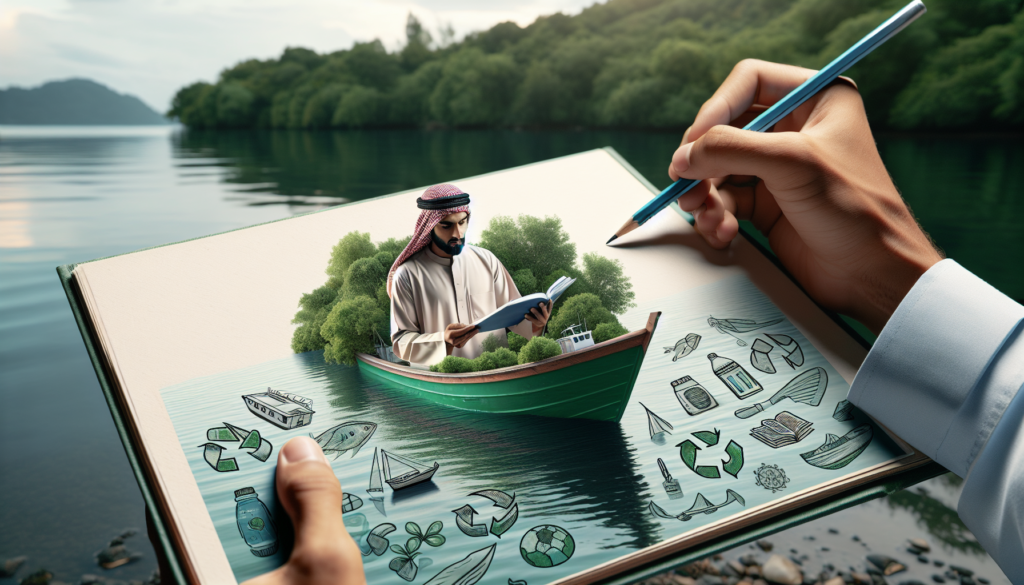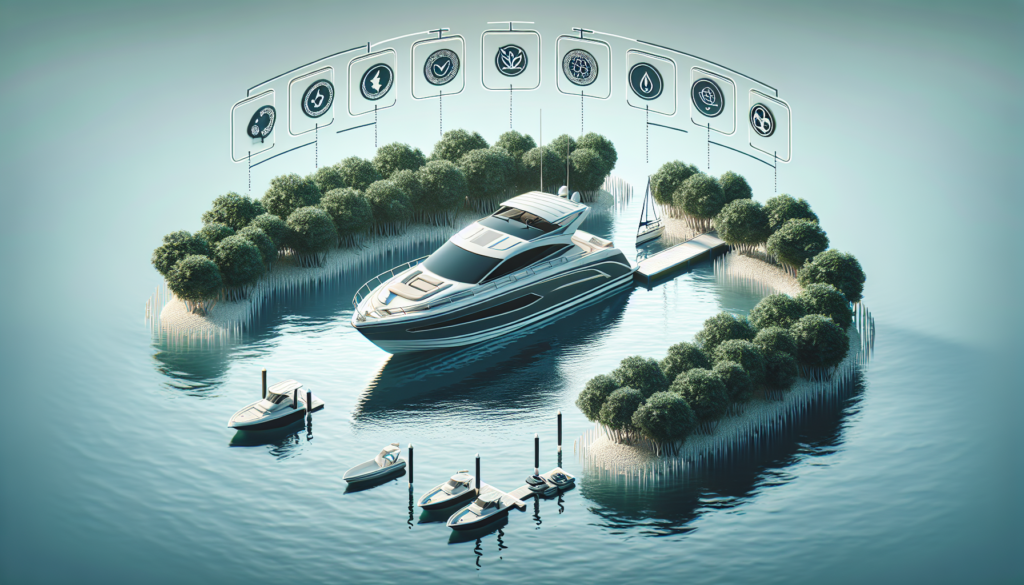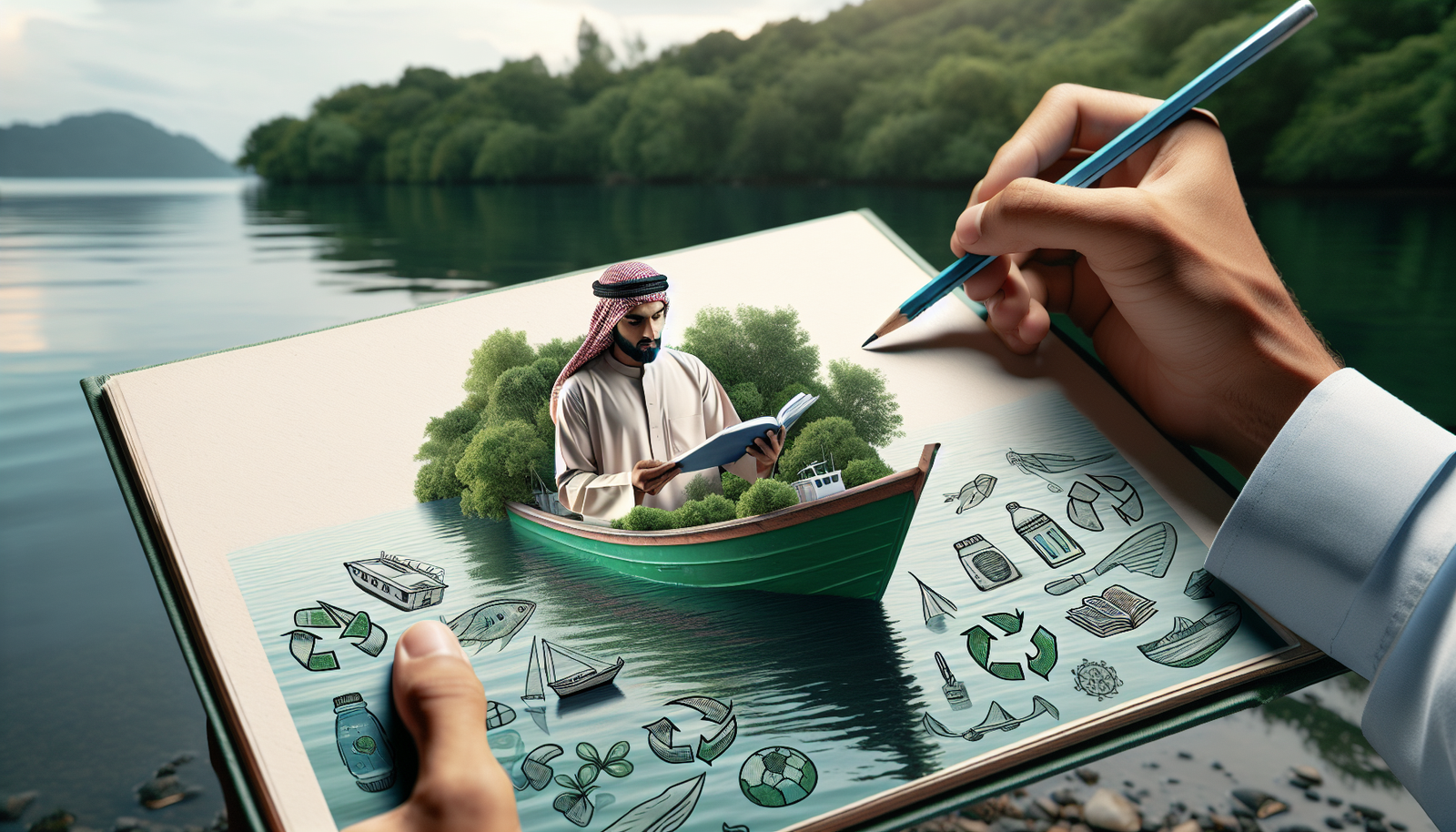Prepare to navigate a wave of exciting and indispensable knowledge about Eco-Friendly Boating Education and Certification Programs. As a passionate boater, it’s time you embrace the responsibility to protect our priceless marine ecosystems. Be part of the solution, not the pollution, by honing your skills and expanding your knowledge through these essential programs. This is your guide to understand their practicality, relevance, and contribution to the wider goal of sustainable boating. It’s about grasping the helm with an awareness of your ecological footprint, so you can sail the seas guilt-free, knowing you’re doing your part to take care of the oceans you love.

Importance of Eco-friendly Boating
When we take to the water for a leisurely day of boating, we rarely stop to consider how our activities might impact the environment. However, conventional boating practices can actually contribute significantly to ecological harm.
Understanding the Environmental Impact of Traditional Boating
Traditional watercraft, particularly those with two-stroke engines, can release unburned fuel and oil directly into the water, polluting the marine ecosystem. Boat propellers can also cause damage to aquatic plants and wildlife. Excessive noise and wake from boats can also disrupt aquatic life, causing harm to the underwater environment.
Need for Sustainable Boating Practices
Therefore, given these potential impacts, there’s a clear need for sustainable boating practices. By adopting green, eco-friendly boating habits, we can enjoy our water-based pastimes while minimizing harm to the environment. Sustainable boating not only preserves our waterways for future generations, but also helps protect the diverse species that call these environments home.
Role of Individuals in Promoting Green Boating
As individuals, you can play a crucial role in promoting green boating. By seeking out and integrating eco-friendly practices into your boating routine, you become a part of the solution to this environmental challenge. Let’s look at some points on how you can familiarize yourself with eco-friendly marine practices.
What is Eco-friendly Boating Education
Adopting sustainable boating habits is a conscious effort, but how do you learn about such practices? This is where eco-friendly boating education comes in.
Overview of Eco-friendly Boating Education
Eco-friendly boating education programs are designed to educate individuals about marine ecosystems and how traditional boating practices can affect these environments. They also provide instruction on how to reduce the environmental impact of boating and promote best practices for sustainable routines.
Skills and Knowledge Gained from Eco-friendly Boating Education
Enrolling in an eco-friendly boating education program offers a wealth of knowledge. You learn about your impact on marine ecosystems when you go boating. You gain skills to operate your vessel more eco-friendly, such as minimizing fuel consumption, avoiding sensitive areas, and managing waste properly onboard.
Role of Education in Influencing Sustainable Boating
Education plays a crucial role in sustainable boating. Through education, you become aware of how your recreational activities can hamper the balance of marine ecosystems and what small steps you can take to prevent it. This awareness can influence your boating habits and encourage others to follow suit.

Types of Eco-friendly Boating Education Programs
There are several types of eco-friendly boating education programs available to suit different learning styles and needs.
Onsite Training Programs
Onsite training programs allow you to learn in a classroom setting with an opportunity for hands-on experience using eco-friendly boating practices. These are usually instructor-led and have a structured curriculum.
Online Eco-friendly Boating Courses
An online eco-friendly boating course provides the flexibility to learn at your own pace. This type of program is usually module-based, with each module focusing on different aspects of sustainable boating.
Self-paced Learning Modules
Self-paced learning modules offer the most flexibility of all. These modules cover all topics needed to understand and implement green boating practices. You can study at your own pace and revisit the material as needed.
Key Components of Eco-friendly Boating Education Programs
Eco-friendly boating education programs typically include several key components that ensure you are equipped to adopt sustainable practices.
Understanding Marine Ecosystems
Understanding marine ecosystems is perhaps the most crucial part of eco-friendly boating education. A thorough understanding of how these ecosystems function and the diverse life they support makes it clear why we must protect them.
Best Practices for Eco-friendly Boating
Learning best practices for eco-friendly boating is a central focus of these education programs. This could include minimizing wake to prevent shoreline erosion, reducing fuel consumption, or navigating carefully to prevent damage to sea beds and wildlife.
Maintenance of Boats for Reduced Environmental Impact
Another key component is learning how to maintain your boat in a way that reduces environmental impact. This could include regular servicing to ensure engines run cleanly and efficiently, or using non-toxic products for cleaning and maintenance.
Recycling and Waste Management in Boating
Waste management is a significant part of eco-friendly boating. Many boating education programs teach you how to prevent litter and correctly dispose of or recycle waste from your boat.

Certifications Available in Eco-friendly Boating
Once you have completed your training, you might want to consider getting certified. Certification is a formal recognition of your knowledge and skills in eco-friendly boating.
Importance of Certification
Certification adds credibility to your commitment to sustainable boating practices. It can also enhance your career opportunities in the marine sector.
Various Certifications in Eco-friendly Boating
There are several certifications available in eco-friendly boating from various organizations. Each certification has a different focus, from eco-tourism to marine conservation, and requires you to meet specific standards to achieve it.
Criteria for Gaining Certifications
Most certifications require you to complete a specific course of study and pass an examination. Some require evidence of practical experience in implementing eco-friendly boating practices.
Process of Getting Certified in Eco-friendly Boating
Getting certified in eco-friendly boating is a straightforward process that involves a few steps.
Eligibility Criteria for Certification
The first step is to determine if you meet the eligibility criteria for the certification you want. This usually involves having a certain level of boating experience and completing the required education program.
Application Process for Certification
Once you meet the eligibility criteria, you can then apply for certification. The application process may require you to submit evidence of your training, experience, and sometimes a certification fee.
Examination and Assessment for Certification
After applying, your knowledge and skills are tested through an examination or assessment. Once you pass this, you become a certified eco-friendly boater.

Benefits of Eco-friendly Boating Education and Certification
There are numerous benefits to getting an eco-friendly boating education and certification.
Increased Employment Opportunities
For one, having a certification could enhance your employment prospects within the marine industry, as organizations are increasingly looking to recruit individuals with expertise in sustainable boating practices.
Enhanced Skills and Competency
With education and certification, you gain a wide range of skills that not only make you a better boater but also help you harmonize your hobby with nature.
Contribution to Environment Conservation
Perhaps most importantly, by applying what you’ve learned, you play an active role in preserving our marine ecosystems for future generations. This is something that you can take pride in.
Role of Government and Non-profit Organizations in Promoting Eco-friendly Boating Education
Government bodies and non-profit organizations play a critical role in promoting eco-friendly boating education.
Government Policies and Incentives
Many government entities have implemented policies and incentives aimed at encouraging boaters to take up eco-friendly boating practices and get certified.
Initiatives by Non-profit Organizations
Non-profit organizations often run initiatives and campaigns to promote eco-friendly boating. These can include education programs, awareness drives, or cleanup initiatives aimed at preserving our aquatic environments.
Collaborations to Promote Eco-friendly Boating
Collaborations between the government, non-profit organizations, and the marine industry are an effective way to promote eco-friendly boating. By working together, these entities can broaden the reach of their initiatives and make a more significant impact.
Challenges in Eco-friendly Boating Education and Certification
While eco-friendly boating education and certification are necessary, there are several challenges individuals might face to adopt it.
Lack of Awareness
One of the major obstacles is a lack of awareness. Many boaters are unaware of the environmental impact of their activities, and the availability of eco-friendly boating education and certification.
Cost Implications of Certification
Certification may also entail cost implications, which could prove to be a deterrent for some individuals. This includes fees for the course, examination, and certification.
Difficulty in Changing Traditional Boating Practices
Change is difficult, and adopting new, eco-friendly practices can face resistance from those accustomed to traditional boating methods. It requires a conscious effort and commitment to make this transition.
Future Trends in Eco-friendly Boating Education and Certification
While there are challenges, the future is promising for eco-friendly boating education and certification.
Incorporating Technology in Eco-friendly Boating Education
With growing technology, expect to see an increase in the use of virtual reality and augmented reality in eco-friendly boating education.
Increased Demand for Certifications
As awareness grows about the impact of human activities on marine ecosystems, there’s likely to be an increase in demand for certifications indicating competency in sustainable boating practices.
Potential Changes in Policies and Regulations
Governments worldwide are likely to introduce new policies and regulations encouraging or requiring boaters to adopt eco-friendly practices.
In conclusion, although adopting eco-friendly boating practices involves an effort in learning new skills and changing habits, the payoff in terms of preserving our marine ecosystems and enhancing our boating enjoyment makes it worth the undertaking.

